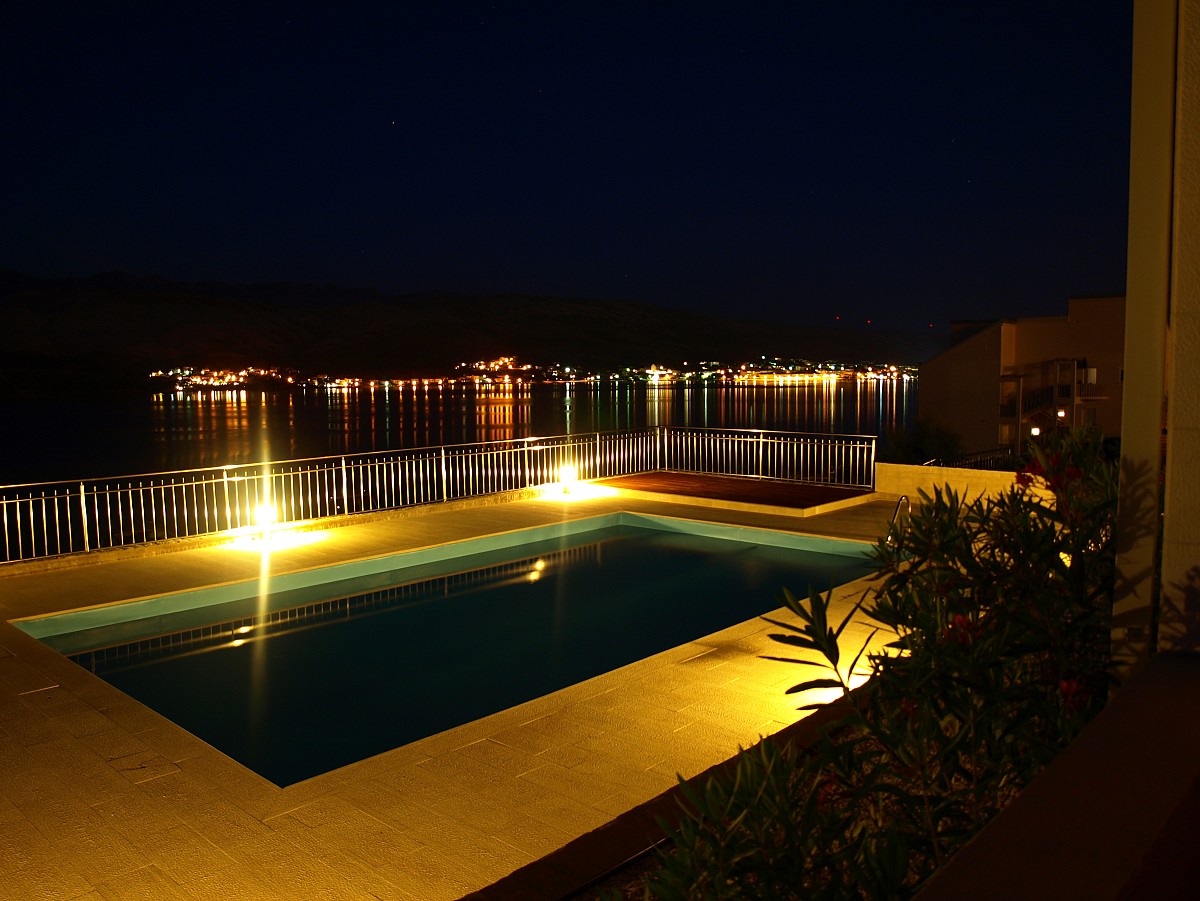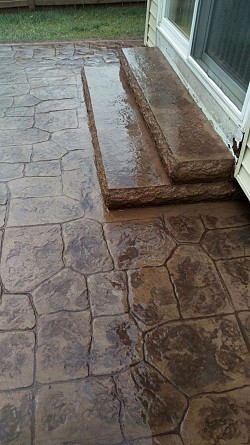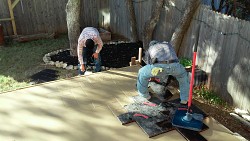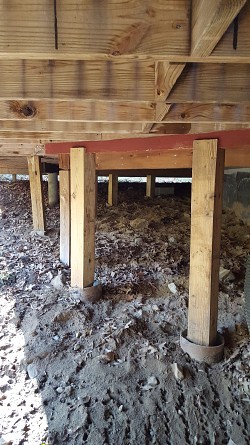Pool Deck Options
 A flat gray concrete pool deck is no longer your only option, though it is still a solid choice. Today's concrete comes in a vast array of colors, textures, and styles. And there are plenty of other materials with a range of benefits and drawbacks — and a wide range of prices.
A flat gray concrete pool deck is no longer your only option, though it is still a solid choice. Today's concrete comes in a vast array of colors, textures, and styles. And there are plenty of other materials with a range of benefits and drawbacks — and a wide range of prices.
When choosing a material, consider the harsh impact of water, chlorine, chemicals, salt, and sun on any deck surface ... not to mention spilled margaritas, popsicles, and ketchup. Stick to light colors and textured surfaces to keep bare feet from burning or slipping. The pool deck should be large and comfortable enough for lounging. You will spend at least as much time next to the pool as you will in the water.
Prices below are an estimate. Actual costs may vary a great deal, and installation costs also differ, depending on the deck size, soils, slope, design, and other factors.
Poured concrete
Cost: Starts at $4 to $6 per square foot, including labor, for basic solid concrete decks. Colors, coatings and finishes are extra.
Poured concrete is perhaps the most popular pool deck material, particularly in warm areas. In colder climates, frozen concrete decks are liable to crack. Materials and labor for basic concrete work are fairly cheap. Concrete also can be customized in a nearly infinite range of colors and finishes. It may be painted or stained, and treated with a rough broom finish or an exposed aggregate for more interesting texture and better slip resistance.
Alternately, stamped concrete can mimic natural stone or brick. However, be sure to check references for any stamped concrete work. The popularity of stamped concrete has most every contractor believing they can stamp concrete, but it takes some practice to look right.
Repair: Damaged concrete decks can be resurfaced relatively cheaply without needing to replace them, but the entire deck must be redone.
Concrete or brick pavers
Cost: $2 and up per square foot, plus labor.
Rather than stamping the deck to look like brick, you can use actual brick or concrete pavers around your pool. Available in a great variety of shapes, colors and sizes, these materials are typically more expensive than poured concrete. You might be able to save on installation, though, because it can be an easier DIY job. If you set the pavers in sand, be sure to use polymeric sand, which is more weed-resistant, and won’t blow into the pool.
Repair: Pavers also may be cost-effective in the long run because individual pavers are easy to replace, and it’s easy to expand the deck if you choose.
Stone
Cost: $7 and up per square foot, plus labor.
Perhaps the most expensive pool deck material is stone. If you can afford it, stone pavers or natural stones are very durable and look great, particularly in natural-looking pool area. Though stone is heavier, it is otherwise as easy to install as concrete pavers.
Like concrete and brick pavers, stone decking materials come in a wide variety of sizes, shapes and colors.
Repair: As long as you use a commonly available option, it should be simple to replace individual stones in the unlikely event of a damaged stone.
Wood
Cost: $2 and up per square foot, plus labor.
Wood is also relatively easy to install, and basic pressure-treated lumber starts at a lower price point than stone. Of course, exotic hardwoods tend to be far more expensive.
Wood decks require more regular maintenance than most other options. Expect to power-wash, then paint or stain the wood regularly. Wood may be less popular than concrete for surface-level decks, but wood and composite “fake wood” are just about the only choices for raised decks.
Composite
Cost: $5 and up per square foot, plus labor.
Composites, best known as brand-name Trex decking, are typically a mix of wood fibers and recycled plastic. They are designed to look like wood, though they can’t quite match the look and feel of real wood. They can also be very hot, so take care to buy the right product in the right shade.
They should be as durable as the most expensive real wood decks, but they don’t require any maintenance. They resist rotting, warping and bugs.
Tile
Cost: $5 and up per square foot, plus labor
Unglazed tile may be set over a concrete base for a classic look with enough traction for a pool deck. The installation can take time, and will drive up the project cost. A tile deck is often very attractive, but does take some upkeep, as grout lines are liable to crack or split, and may need to be replaced.
Updated October 28, 2018.
Looking for a Pro? Call us (866) 441-6648

Landscaping Average Costs
Landscapers Experiences

The Stamped Concrete Patio I’ve Been Waiting For

My Son’s Stamped Concrete Patio Was A Fast Track, Quality Job



